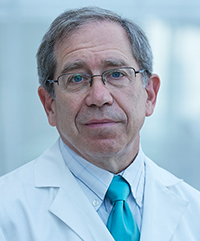$10.7 Million to Study CAR T Cells in Solid Tumors at Abramson Cancer Center
 A new program project grant from the National Cancer Institute (NCI) will fund research by the Translational Center of Excellence for Lung Cancer Immunology at the Abramson Cancer Center of the University of Pennsylvania to improve the effectiveness of chimeric antigen receptor (CAR) T cell therapy at fighting solid tumors. The program will specifically evaluate approaches in lung cancer and mesothelioma. The $10.7 million grant will support research for the next five years.
A new program project grant from the National Cancer Institute (NCI) will fund research by the Translational Center of Excellence for Lung Cancer Immunology at the Abramson Cancer Center of the University of Pennsylvania to improve the effectiveness of chimeric antigen receptor (CAR) T cell therapy at fighting solid tumors. The program will specifically evaluate approaches in lung cancer and mesothelioma. The $10.7 million grant will support research for the next five years.
“Although CAR T cells have revolutionized the treatment of leukemia and bone marrow cancers, we have not yet had the same success in treating solid tumors like lung cancer,” said the principal investigator of the grant, Steven M. Albelda, the William Maul Measey Professor of Medicine and a member of the Center for Cellular Immunotherapies in the Abramson Cancer Center. “The goal of this program project is to solve this problem, and we’re grateful to the NCI for supporting our efforts to expand this approach to more patients around the world.”
The grant will include three interrelated projects, all of which will focus on exploring the ability of CAR T cells to stimulate other immune cells like dendritic cells and T cells to respond against the tumor, known as the “bystander effect,” in non-small cell lung cancer (NSCLC) and malignant pleural mesothelioma (MPM).
The first project is a clinical trial with newly designed, highly potent anti-mesothelin CAR T cells. This project will also include a future trial to evaluate the safety and activity of CAR T cells engineered to engage the tumor “support structure” by targeting a protein called fibroblast activation protein (FAP), which is present on the supportive fibroblasts in the tumor. The results of the first two trials will also be used to design a third trial in the future, which will also be supported by this grant. Initial trials were conducted in collaboration with Novartis, but future trials with the anti-mesothelin CAR T cells will be conducted solely by Penn.
The second project will involve tracking CAR T cells and their effects in patients. It will attempt to determine how long these CAR T cells persist and where they go, as well as whether they can activate other T cell responses.
The third project will study ways to improve the effectiveness of CARs in animal models. Since not all the tumor cells will have the target of the CARs, it will be important to find ways to trigger a patient’s own immune system to also attack the tumor cells the CARs will miss, another facet of the “bystander effect.” This project will also explore ways in which CARs can be combined with other therapies to enhance efficacy.
“The stakes of these projects are incredibly high. Achieving the success rates for CAR T therapy in solid tumors that we’ve already seen in leukemia and lymphoma would be a major paradigm shift in the treatment of these cancers,” Dr. Albelda said.
Other Penn researchers involved in this include Charu Aggarwal, Beatriz Carreno, Andrew R. Haas, Wei-Ting Hwang, Carl June, Simon Lacey, Corey Langer, Gerald Linette, Leslie Litzky and Ellen Puré.
